DRYDEN, Autograph letter signed ('John Dryden'), comprising a critique of a translation of a passage in Lucretius, De Rerum Natura , Book I, and a letter: 'Sir, The company having done me so great an honour, as to make me their Judge, I desire from you the favour, of presenting my acknowledgements to them; & shou'd be proud to heare from you, whether they rest satisfy'd in my opineon, who am, Sir your most humble Servant, John Dryden', 2 pages, 4to, n.d. . Dryden delivers a crushing verdict on the lines of Lucretius translated by 'Mr Creech': 'Besides, if o'er whatever yeares prevaile Shou'd wholly perish, & its matter faile'. He takes exception to the grammar, giving a detailed commentary on why it was incorrect, concluding that the tranlator had 'notoriously bungled: that he has plac'd the words so confusedly, as if he had studied to do so ... to comfort the looser, I am to believe, that the cross-grained, confusd verse, put him so much out of patience, that he would not suspect it of any sence'. Dryden adds his own translation: 'Besides, what ever time removes from view, If he destroys the stock of matter too, From whence can kindly propagation spring Of every creature, & of every thing?' Thoms Creech (1659-1700), a scholar of Wadham College, Oxford (1676), and Fellow of All Souls (1683), published a celebrated translation of Lucretius in 1682, but the lines quoted in this critique do not occur in it. In 1684 he dedicated his translation of Horace to Dryden. When Dryden published his own translation from Theocritus, Lucretius and Horace in 1685, he disclaimed in the preface any intention of robbing Creech 'of any part of that commendation, which he has so justly acquir'd'. But in another passage in the same preface he wrote, 'Translation is a kind of D rawing after the Life; where everyone will acknowledge there is a double sort of likeness, a good one and bad ... I cannot without some indignation, look on an ill Copy of an excellent Original'. Whether Dryden himself considered Creech 'a botching Interpreter', gave rise to some speculation at the time. Included in the lot is an autograph letter signed by Edmond Malone, relating to his edition of Dryden (1811); and two portrait engravings. Literature : James Kinsley, ed. The Poems of John Dryden , 1958, I, pp.391, 398; IV, 1, 958. (4)
DRYDEN, Autograph letter signed ('John Dryden'), comprising a critique of a translation of a passage in Lucretius, De Rerum Natura , Book I, and a letter: 'Sir, The company having done me so great an honour, as to make me their Judge, I desire from you the favour, of presenting my acknowledgements to them; & shou'd be proud to heare from you, whether they rest satisfy'd in my opineon, who am, Sir your most humble Servant, John Dryden', 2 pages, 4to, n.d. . Dryden delivers a crushing verdict on the lines of Lucretius translated by 'Mr Creech': 'Besides, if o'er whatever yeares prevaile Shou'd wholly perish, & its matter faile'. He takes exception to the grammar, giving a detailed commentary on why it was incorrect, concluding that the tranlator had 'notoriously bungled: that he has plac'd the words so confusedly, as if he had studied to do so ... to comfort the looser, I am to believe, that the cross-grained, confusd verse, put him so much out of patience, that he would not suspect it of any sence'. Dryden adds his own translation: 'Besides, what ever time removes from view, If he destroys the stock of matter too, From whence can kindly propagation spring Of every creature, & of every thing?' Thoms Creech (1659-1700), a scholar of Wadham College, Oxford (1676), and Fellow of All Souls (1683), published a celebrated translation of Lucretius in 1682, but the lines quoted in this critique do not occur in it. In 1684 he dedicated his translation of Horace to Dryden. When Dryden published his own translation from Theocritus, Lucretius and Horace in 1685, he disclaimed in the preface any intention of robbing Creech 'of any part of that commendation, which he has so justly acquir'd'. But in another passage in the same preface he wrote, 'Translation is a kind of D rawing after the Life; where everyone will acknowledge there is a double sort of likeness, a good one and bad ... I cannot without some indignation, look on an ill Copy of an excellent Original'. Whether Dryden himself considered Creech 'a botching Interpreter', gave rise to some speculation at the time. Included in the lot is an autograph letter signed by Edmond Malone, relating to his edition of Dryden (1811); and two portrait engravings. Literature : James Kinsley, ed. The Poems of John Dryden , 1958, I, pp.391, 398; IV, 1, 958. (4)









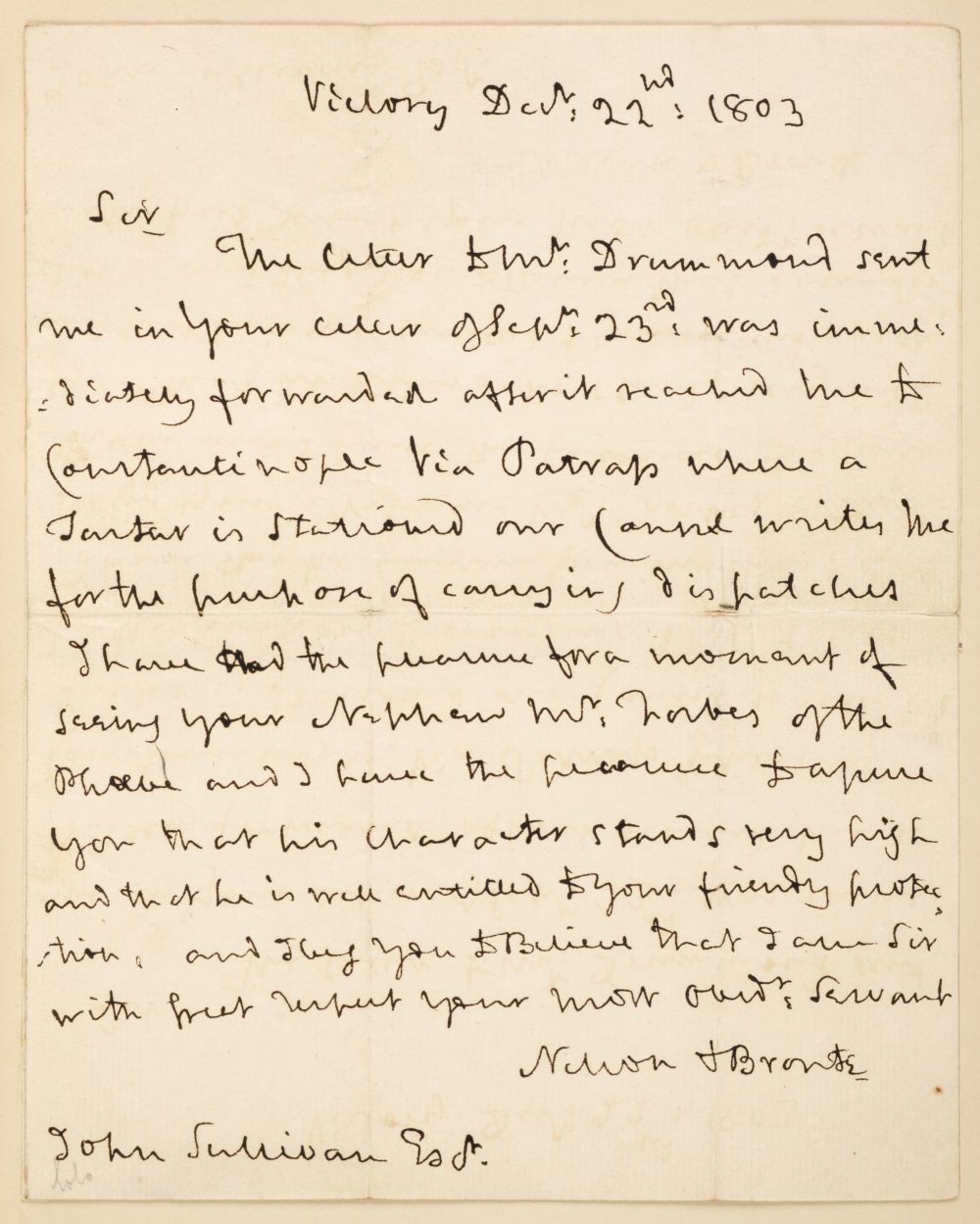
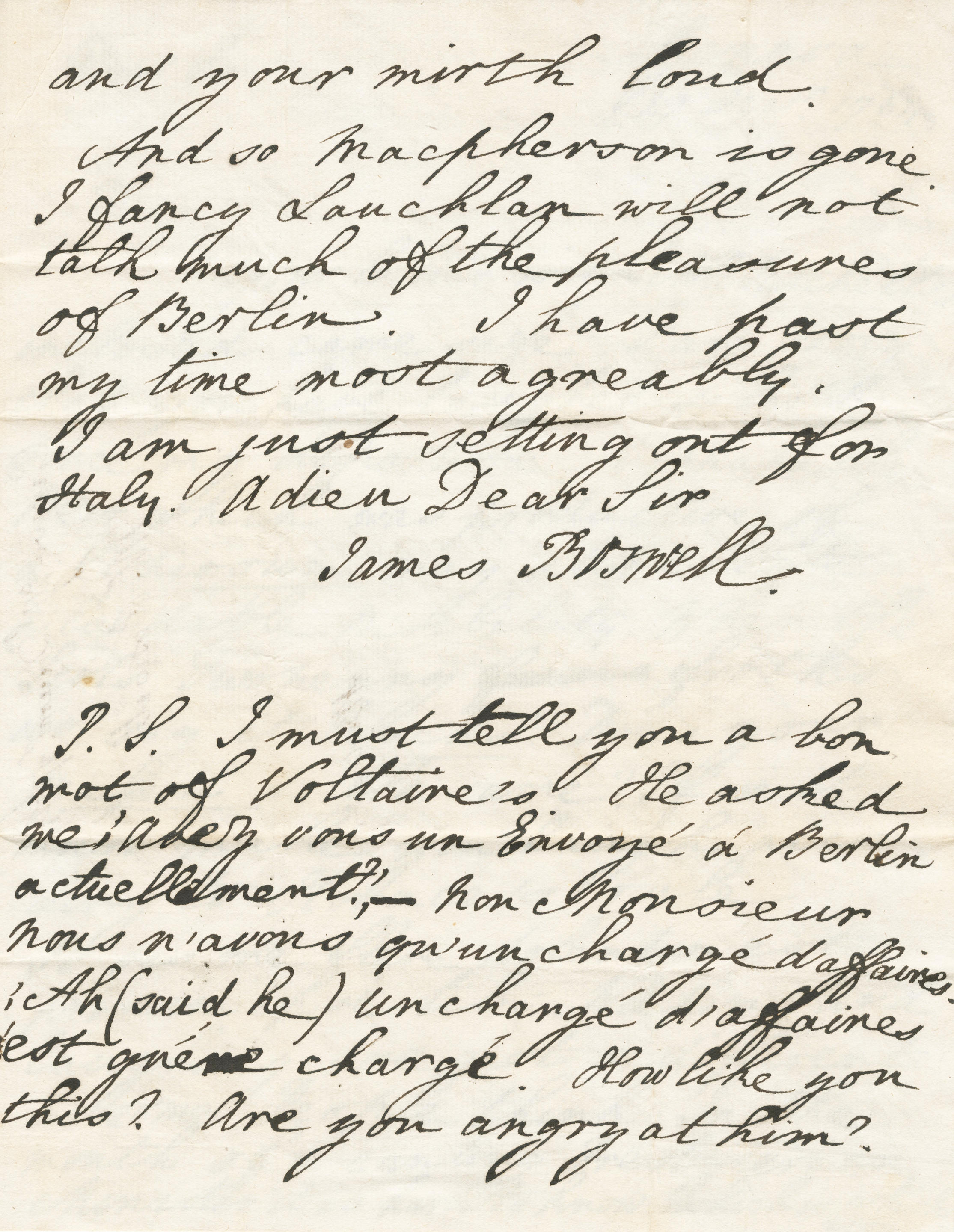

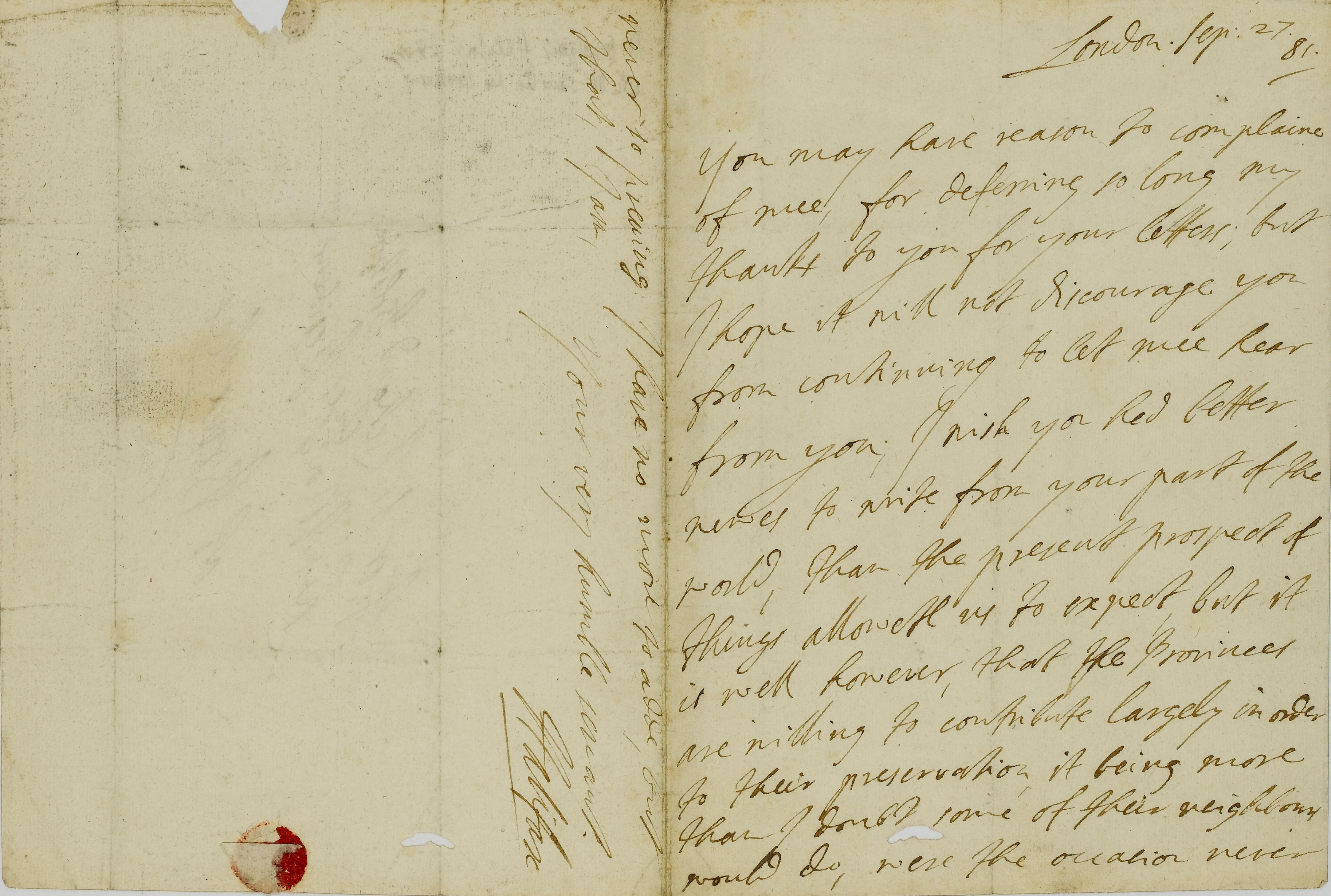
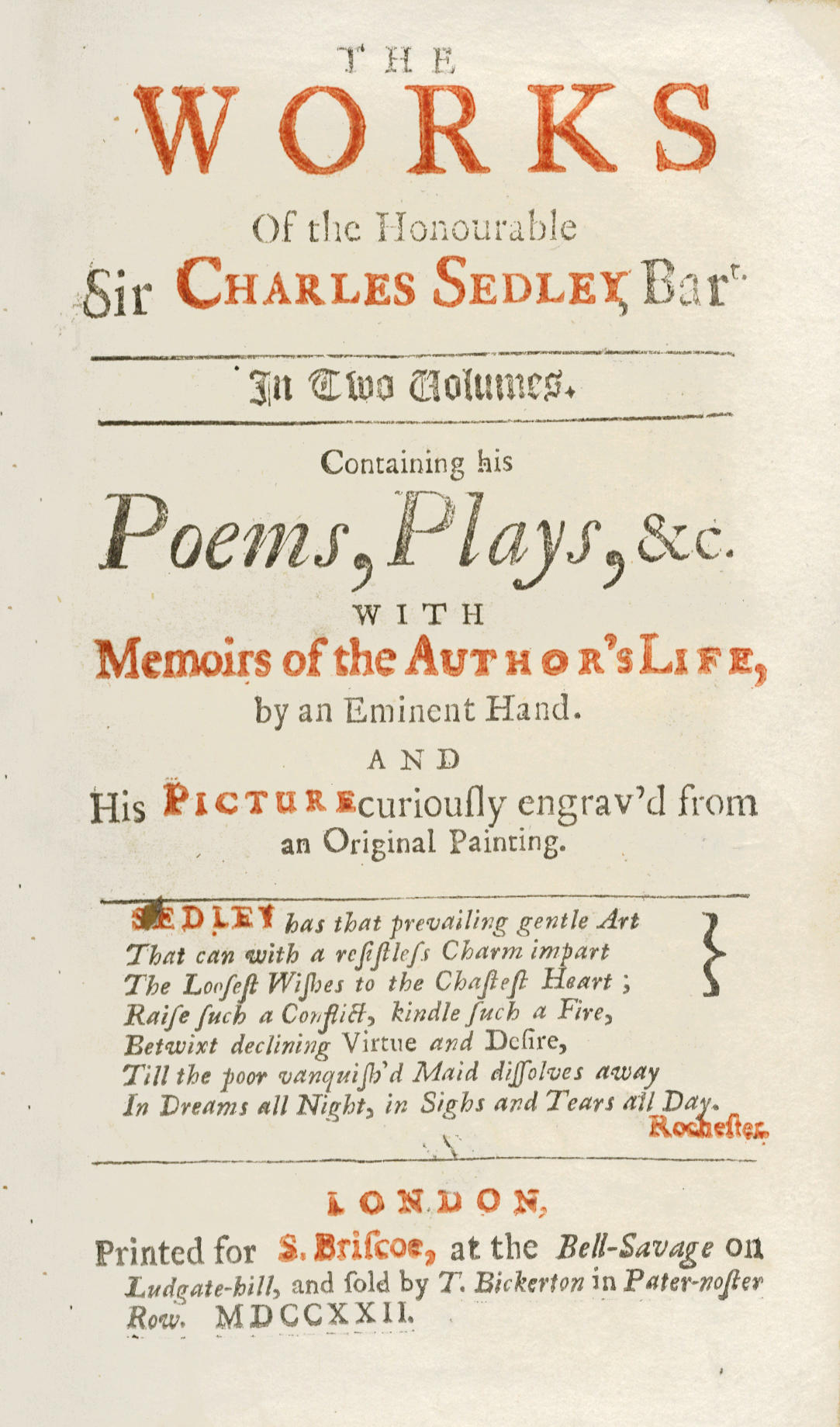
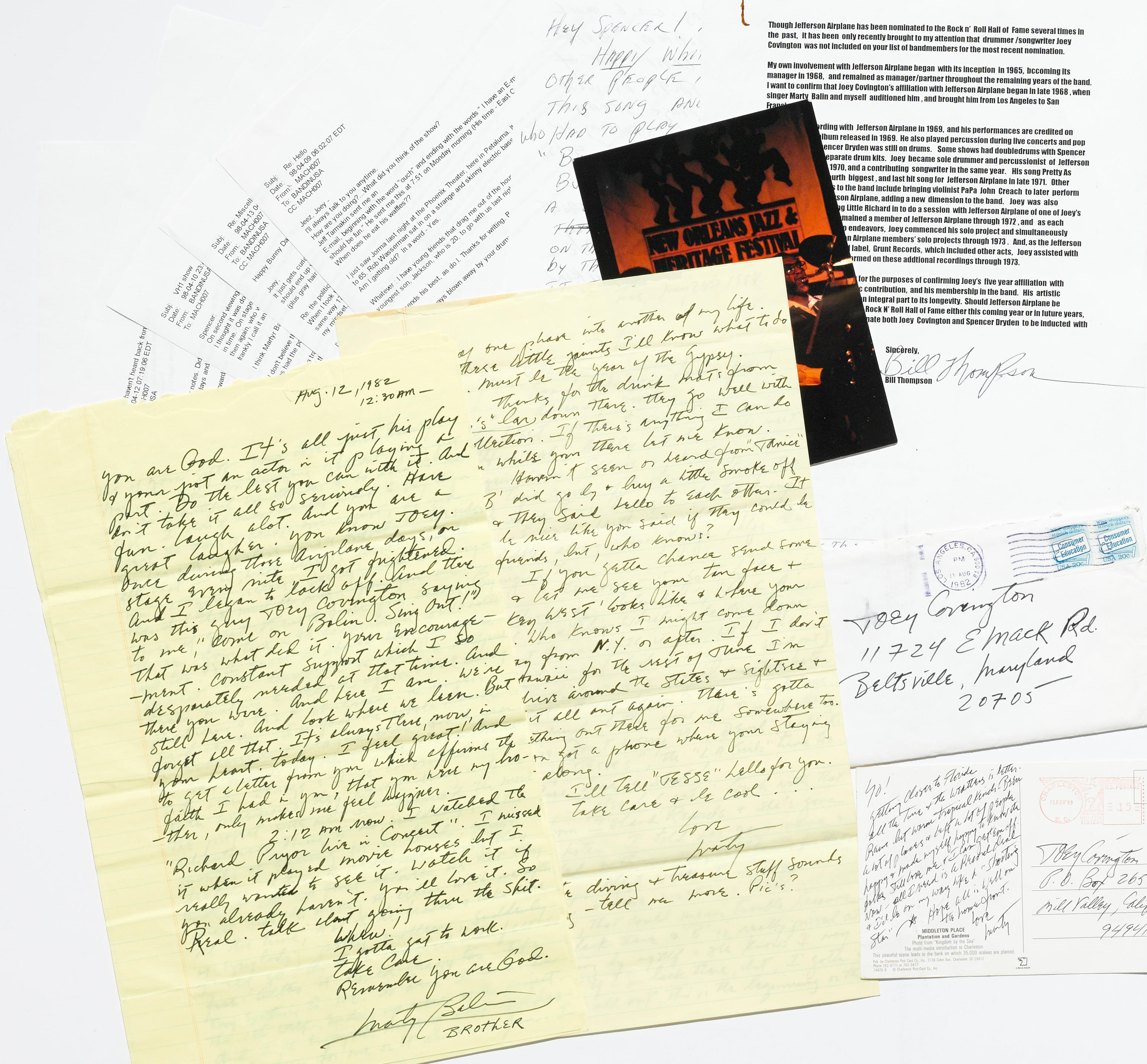
Try LotSearch and its premium features for 7 days - without any costs!
Be notified automatically about new items in upcoming auctions.
Create an alert